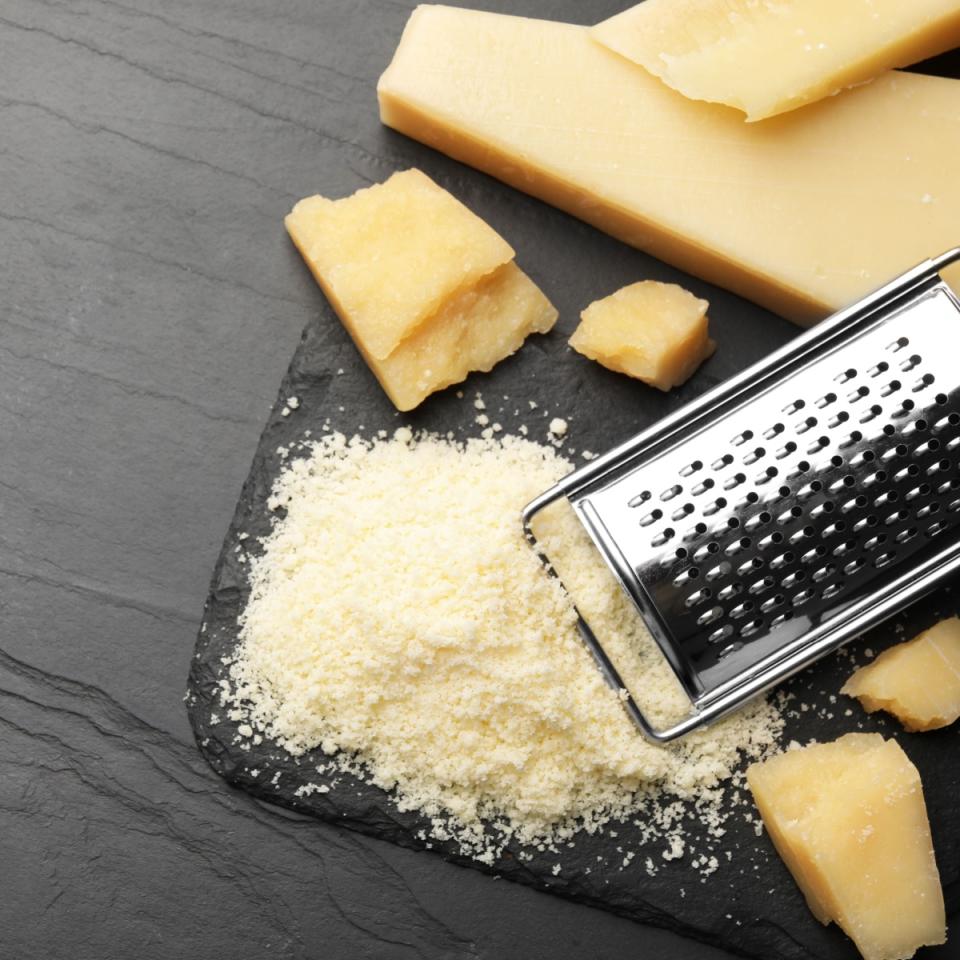4 Belly-Friendly Cheeses You Can Eat Without Worrying About Gas & Bloating, According To Experts: Feta Cheese & More

Cheese, with its diverse textures and flavors, is a globally cherished food. However, concerns about gas and bloating can sometimes hinder the enjoyment of cheese. Luckily, there are several belly-friendly options available. These cheeses not only provide a delightful culinary experience but also ensure that cheese lovers can indulge without worrying about digestive discomfort.
We caught up with Catherine Gervacio, registered dietitian and a certified exercise nutrition coach, to discover four unexpectedly digestive-friendly cheeses that you can enjoy without worrying about gas or bloating. According to her, feta cheese, cottage cheese, parmesan cheese, and goat cheese are the top choices for a happier stomach. Keep reading to delve deeper into these cheese options.

Feta cheese
Lactose, a type of sugar found in dairy products, can be difficult for some people to digest, leading to gas and bloating. Feta cheese boasts lower lactose levels compared to many other cheeses due to its primary ingredients being sheep's or goat's milk. These milks inherently have lower lactose content than cow's milk. Additionally, feta cheese undergoes a fermentation process that further reduces its lactose content, making it easier on the digestive system for many individuals.
"The fermentation process used to make feta cheese helps break down lactose. This makes feta more digestible for people with lactose intolerance compared to fresh, unfermented cheeses," Gervacio says.

Cottage cheese
Cottage cheese is typically lower in fat compared to many other cheeses. High-fat foods can sometimes contribute to digestive issues like bloating, but cottage cheese's lower fat content can be gentler on the stomach.
"Ideally, the lactose-free version is best to reduce gas and bloating. This kind is specifically formulated for those with lactose intolerance, eliminating the risk of gas and bloating from lactose," she notes. "Also, the soft and curd-like texture of cottage cheese makes it easier to digest compared to harder cheeses. Easier digestion means less chance for undigested food to reach the large intestine, where it can ferment and produce gas," Gervacio says.

Goat cheese
Goat cheese is typically easier to digest and less likely to cause gas and bloating compared to some other cheeses. This is because goat's milk naturally contains lower levels of lactose than cow's milk, making goat cheese a suitable option for individuals who are sensitive to lactose.
"Similar to feta, this cheese isn't made from cow's milk. Goat's milk contains a higher proportion of medium-chain fatty acids (MCFAs) that are easily digested and absorbed by the body, reducing the risk of digestive issues like gas and bloating. Also, it generally has a lower fat content than many cow's milk cheeses. High-fat foods can slow digestion and may cause bloating, so consuming lower-fat options can help alleviate this issue," Gervacio reveals.

Parmesan cheese
Parmesan cheese, like other aged cheeses, undergoes a fermentation process during aging, which lowers the lactose content. Parmesan cheese is also high in protein, which can be beneficial for digestion. Protein helps to promote feelings of fullness and can aid in maintaining a healthy digestive system.
"Parmesan cheese is aged for a long time. During the aging process, lactose is broken down by bacteria, resulting in a very low lactose content. It also alters the protein structure, making it easier to digest. This reduced complexity in protein structure means that Parmesan is less likely to cause digestive discomfort compared to less-aged cheeses," she notes.

